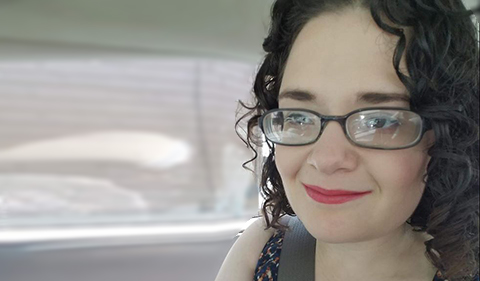
Arianna Iliff
Editor’s Note: The Happy Beginnings series features recent College of Arts & Sciences graduates who are getting started in careers, graduate school and service.
Ohio University alum Arianna Iliff ’11 is an opioid treatment counselor in Northeast Ohio, trying to prevent clients from relapsing.
As an undergraduate, she never would have imagined herself in grad school, learning about the history of psychology, and on ground zero of the opioid crisis.
“Yet here I am,” she says. “It’s good work.”
She graduated from the College of Arts & Sciences at Ohio University with a B.A. in Sociology with a Certificate in Women’s and Gender Studies.
Iliff is also in a graduate program in at the University of Akron in Counseling/Marriage and Family Therapy, which leads to dual licensure in each field. She also works as a student assistant at University of Akron’s History of Psychology archives.
Opiate Treatment Counselor
She earned her initial license in chemical dependency counseling earlier in 2017, enabling her to work on an opiate treatment team with a criminogenic population.
After earning this license, she was able to move into a clinical position within a couple of weeks. She explains that the opioid crisis is Northeast Ohio is such that the demand for counselors is high.
As an opiate treatment counselor, Iliff works with three treatment groups per week, all oriented toward preventing relapse. Two of her groups are oriented toward clients who are engaged in medication-assisted treatment using naloxone, also known as Vivitrol.
After learning about medication-assisted treatment to inform her work, she has become an advocate for its use.
The example she gives: “If a person has depression or an anxiety disorder, they may try counseling or medication to treat it. While there are myths and stigma around medication-assisted treatment, I believe that addiction, which is just as much of a biological, psychological, and social disorder as other mental health challenges, should have access to similar options. MAT can really change people’s lives.”
The Best Part
“It’s a privilege to help people,” Iliff says, “To be allowed the chance to provide care and assistance to people who are suffering is incredible. If the greatest asset I have is an empathetic heart, then what an honor it is to be able to channel that heart into a career in counseling.”
Her OHIO Experience
When she was at OHIO, she sensed that she wanted to work in counseling or a related field, but hadn’t settled on a specific focus of practice. Now, having settled on Marriage and Family Therapy, she can see how her sociology major informed her choice.
“I loved studying sociology,” she explains. “My joke used to be that I wanted to learn the social rules so that I could break them! But what I really learned was that everything happens in context–no man is an island. Marriage and family therapy views individuals as part of a system, which is imbued in context, and treats the relationships that create the system. I believe that our relationships are the greatest things that humans have, and healing them could solve many of the world’s problems.”
Iliff was inducted into Phi Beta Kappa in 2011, and she says not to underestimate the liberal arts, especially the social sciences.
“If it weren’t for my experience studying sociology, I doubt I would approach the world the way I do,” she says.



















Comments